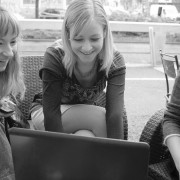Understanding what type of learner you are
As a child I remember thinking, I can’t wait until I know everything and I don’t need to learn anymore. How wrong can you possibly be? Life is one long learning curve, a process that only really ends when you die which is why it’s important to understand the type of learner that you are and how to make learning work for you.

The old saying “you learn something new everyday” couldn’t be more true and I make a point at the end of every day to recognise and record the new things that I have learned.
Learning is generally defined as relatively permanent changes in behaviour, attitude, skills or knowledge.
If you learn something and then forget it fairly soon afterwards then you didn’t really learn it. It’s really important to understand why the new things that you learn are important, that makes them easier to remember.
If something doesn’t seem important then it will be more difficult to remember, our brain automatically prioritises the things which are most important to us (if you forget the birthday of a close friend or relative, don’t be surprised if they are upset as we perceive forgetting something to mean that it isn’t important).

HOW TO FIND OUT WHAT TYPE OF LEARNER YOU ARE
If you can learn to understand what type of learner you actually are then you can ensure that you get the most out of any educational experience.
There are actually four different types of learners, it’s great to find out which one you are.
TYPE 1 LEARNERS
are very imaginative, connect highly with their feelings and need to relate the purpose of their learning to real life. If you find yourself asking ‘why do I need to know this’ then you could be a type 1 learner.
If you consider how characters in books or movies may feel rather than the actual story then you are showing all the traits of a type one learner.
Embrace this by finding a reason for learning something and work out how it can help you in your day to day life.
TYPE 2 LEARNERS
are very analytical and prefer to reflect and think before giving an answer.
They want to have a strong understanding of exactly what they are learning and be able to put it to use.
People who are type 2 learners are able to take what they already know and adapt it to new situations easily and they excel in traditional learning situations such as classrooms.
I (me – Gemma Purnell) am a type 2 learner, who likes to observe what is being taught, figure out how I can use it to my advantage, then go away and try it for myself.
TYPE 3 LEARNERS
are very physical, hands on types of learners, they are the types of kids who will take things apart to see how they work and become tinkerers who love to play with mechanical toys.
Most people with practical skills such as carpenters or mechanics are type 3 learners. Their favourite question is “how does this work?” if you were the kind of kid who would take your toys apart just to try and put them back together again then you are probably a type 3 learner.
Michael, who runs the PDS branch in Denmark is a type 3 learner, which probably means why he is the ideal person to go to when something is not working and you can’t figure out why.
TYPE 4 LEARNERS
are very dynamic and creative and prefer a ‘learning by doing’ approach. They are naturally inquisitive and their favourite question is ‘what if’. They want to know how they can change things or to personalise them, to take what they have learned and adapt it.
Modern teaching aims to incorporate all four learning skills into the classroom so that all students can be engaged in the lesson. When I was studying to become a Google Certified Educator, a lot of the topics covered included different types of learners and how you can use a Digital learning environment to cover their needs.
However, if you are doing self-study or learning via an online course it is important that you understand your own particular learning type to get the most out of what you are doing.
What type of learner are you?
I am a type 2 learner, I like to study and absorb information and can often connect together the missing pieces after some quiet reflection. I know that I excel in traditional learning environments make faster, better progress by learning the theory and then implementing what I have learned as opposed to learning by doing.
When it comes to languages I can piece together sentences and easily understand what people are trying to communicate even if I don’t understand every word they are using.
Lifelong learning is an important part of self development and particularly important when you are living in a foreign country which doesn’t always offer the same career opportunities which you may have had in your home country. It may be necessary to learn some new skills or refresh some forgotten abilities and understanding what type of learner you are will make it easier to do that.

